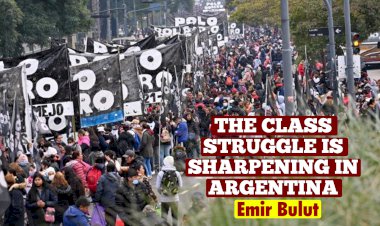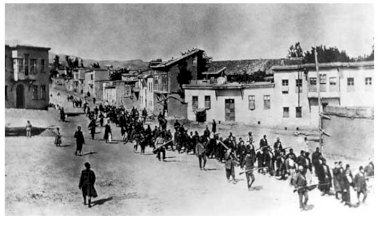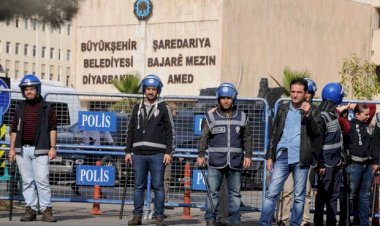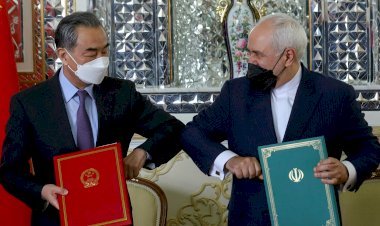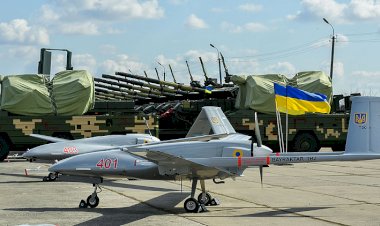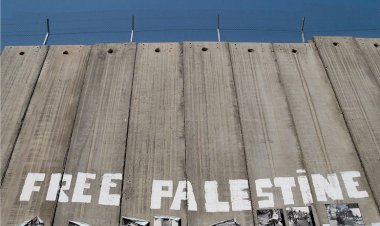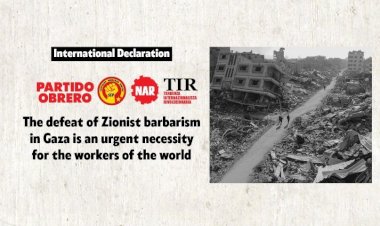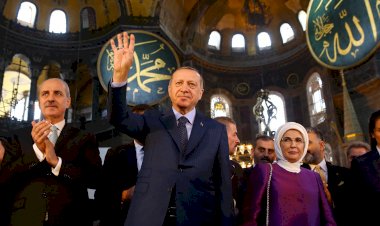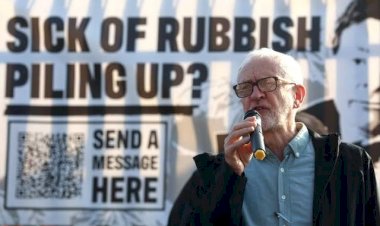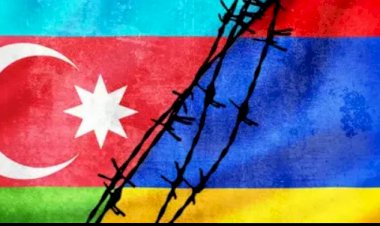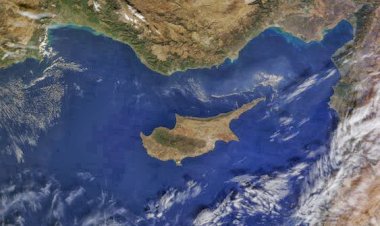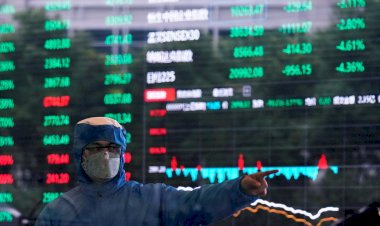Centenarian of the Turkish “Republic": For Whom, Against Whom?
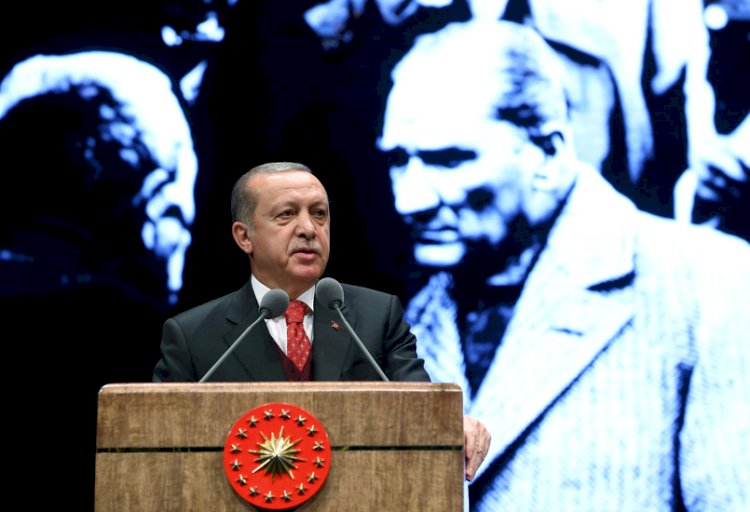
We had written on the issue in 2012 as follows: "As we enter the 90th anniversary of its foundation, the process of purging the Kemalist military and civilian bureaucratic forces, the founder of the Republic of Turkey, from the state apparatus has been largely completed."
As of 2012, the process of eliminating Kemalist nationalist military and civilian bureaucratic tendencies from the state apparatus was completed. But only one phase of the fight was over. After the liquidation of the Kemalists, other powers were preparing to play their trump card. A lot of blood would be shed...
The suppression of the Gezi Rebellion in 2013 was the last masterpiece of the AKP-Gulenist sect coalition together. The 17-25 December period, which broke out in the last weeks of the same year, they have proved to everyone that these two Islamist factions were fighting to the death. Imagine that the two Islamist wings, by following different paths, had become so powerful that they were now fighting over who would be the new master of the state. It was such a deadly fight that the winner would take everything and the loser would be the biggest "terrorist" and "traitor"... The outcome was determined by the 15 July 2016 coup attempt. The Referendum of 16 April 2017 drew the institutional framework of Erdogan's presidential regime which is the new "republic".
The “Republic” Fiasco
Who would be the new one-man, Erdogan or Fethullah Gulen? Nothing explains better what a fiasco the Republic was. The Republic had such a rotten foundation that Erdogan and Gulen were gaining tremendous power, but no one could stand against them even when it came to maintaining balance. After many years, an ambitious preacher from Erzurum- a poor and rural city located in the very east of Turkey- who was a primary school graduate, was so organized within the state apparatus that his octopus-like arms had power everywhere. One should not forget that Gulen's teacher, Said-i Nursi, had been trying to expand his Islamist community since the first years of the republic. At the same time, communists had been killed and imprisoned by the Kemalist regime.
The one who would drive another nail in the coffin of the Republic would be another ambitious Islamist leader who came from poverty, Erdogan. Since the Republic and its founding leader are still nominally intact, there may be no talk of a collapse, but it is clear that the old one is already dead and a new regime is being built: the "Second Republic".
The second became institutionalized through the bankruptcy of the first. The second did not arise out of nothing but took root within the first. The rulers of the first republic presented the republic on a silver plate to various factions of Islamists and ultimately to Erdogan.
First of all, the big bourgeoisie, which has been enriched since the very foundation of the republic... Back then, at the very beginning of the republic, Koç Holding and others were enriched with public resources, saying that we should have a "local and national" capitalist class. Needless to say, with what was stolen from the workers and peasants. And those taken by force from non-Muslims. As time went on, the bourgeoisie, supported by the state, became bankers and industrialists... But what they actually did and learned best was to make money the easy way. It is not an AKP tradition to pass on guaranteed wealth to certain bosses; there is a precedent for this.
The Turkish bourgeoisie tried to pocket the benefits without showing any significant success, innovation, and originality, without showing any qualifications despite being at the bottom of the large and rich European market. Afterwards, they promoted the AKP by saying that we should be fully integrated into global capital and get rid of the military-bureaucratic tutelage that hinders us. Lacking the social weight to seek its own interests and fight, the big bourgeoisie relied on the AKP with the signals it received from the EU and the USA. The liberal intellectuals they fed, applauded the AKP for the liquidation of the Kemalist-nationalist elites. When the big bourgeoisie saw that the path of civilianization and democratization was not being pursued as they had assumed, they were not very happy. There wasn't much they could do anyway, they were weak. The weakness of capitalists in underdeveloped capitalist countries is a historical fact. The organization of the big bourgeoisie, TÜSİAD, followed these same tendencies. They tried to get tenders, privatizations, and jobs from AKP. They partnered with upstarts made rich by the AKP and entered into tenders with them. They got their share of the loot.
No Room for Socialists
Now we are not going to throw the blame to the bourgeoisie and wrap up the topic. The republic established in 1923 has a bourgeois character. This republic created a national capitalist class by the exploitation of workers and peasants, but it has not achieved considerable social development. Working people are still poor and backward. Kurds who demand their national rights have been suppressed in terrible ways. In short, it is inevitable that millions of workers will turn to different alternatives to the system due to class and other social contradictions. No matter what you do, you cannot prevent major social contradictions from creating a strong energy.
So, into which channels will this energy evolve? The first natural address is the union struggle, left and socialist parties. But if you do not give the left any room from the beginning, this energy will be directed to other alternatives that are critical of the system, that is the Islamists. In this way, Islamist criticism has become a center of attraction. In the past, while Islamists were patted on the back against the leftist struggle, communists and revolutionaries were given gallows or dungeons. From Mustafa Suphi to Deniz Gezmiş, from Nazım Hikmet to Ethem Sarısülük, the continuity of the bourgeois state on this issue has never been disrupted. We see a similar picture of stability regarding the oppression of the Kurds.
While this was the situation of the workers throughout the entire history of the First Republic, why should anyone be upset about the First Republic when the oppression of minorities and the oppression of communists was obvious?
The first republic perhaps sounds more nostalgic, with concerns that secularism and modernity have been lost due to the oppression of the Islamist regime, but wasn't the field left to the Islamists after the revolutionaries who opposed the order were crushed to death under torture? Is the establishment's approach to Islamists, from Said-i Nursi to Gülen, from Necip Fazıl to Erdogan, the same as its view of Mustafa Suphi's to Nazım and Hikmet Kıvılcımlı? Didn't those who sent Deniz Gezmiş to the gallows pave the way for his school friend Abdullah Gül?
Anti-Communist Republic: A Class Nature
If the First Republic became one of the epicenters of anti-communism and turned into an outpost of imperialists, neither Menderes nor Inonu can be blamed for this. Referring the issue to individuals is childish. The Republic was established with a bourgeois character. Naturally, the republic would be in the capitalist camp during the Cold War and would side with the USA in the war against communism.
Islamists have always been valued as good allies in the fight against communism, both by the USA and the rulers of the Republic. In the period between 1965 and 1980, the USA, the local big bourgeoisie, the nationalist statesmen, the fascist movement, and the Islamists organized a bloody campaign against the awakening working people and youth. The CHP leader of the time, Bülent Ecevit, was also a staunch anti-communist and played his special role well in this campaign. This situation reveals the bourgeois character of the republic. Kemalist-nationalist elites, TÜSİAD, NATO, Islamists, and fascists united against the awakening of the working class and the poor in the class war. The socialist movement, which was in the trap of Stalinism, was not equipped to resist this "Holy Alliance". As a result, with the September 12 coup d'etat, the awakening of the working people was completely crushed and the doors were opened wide for the rise of the Islamists.
Conclusion
Long story short, the AKP dictatorship that has become institutionalized today is a result of the deep contradictions of the republic and the socialist movement's failure to benefit from these contradictions. The problems related to the failure of the socialist movement require a historical reckoning. On the other hand, the constant suppression of socialists has paved the way for Islamists. The rulers of the Republic are unsuccessful, and the bourgeoisie they raised is incompetent and shallow. The dissolution of the existing, albeit broken, bourgeois constitutional system; They watched it turn into a tribal regime where arbitrariness and tyranny reign. However, there is a tremendous continuity in the hostility towards workers.
Shedding tears over the first republic shows that no lessons have been derived from the past. So-called communists and progressives who talk about the gains of the Republic continue to mislead the left because they do not see life through class struggle. In fact, these groups, which are nothing more than left-wing Kemalists, especially the Communist Party of Turkey (TKP), are loyal to the bourgeois state. The discourse they embellish as a "socialist republic" is no different from a bourgeois republic. The much-touted enlightenment has been surpassed by Marxism, which reveals the class contradictions within it. Today, accepting enlightenment as a cornerstone is not something communists can do. Real communists are the carriers of the revolutionary cause of the working class, they see the life through glasses of the classes and never line up behind this or that wing of the exploiters.
What real communists understand by socialism is a new order that develops through a 1917-type revolution, that is, through the organization and uprising of workers and laborers. This new system is a feast of the oppressed, passionately internationalist, and the fraternization of peoples.



